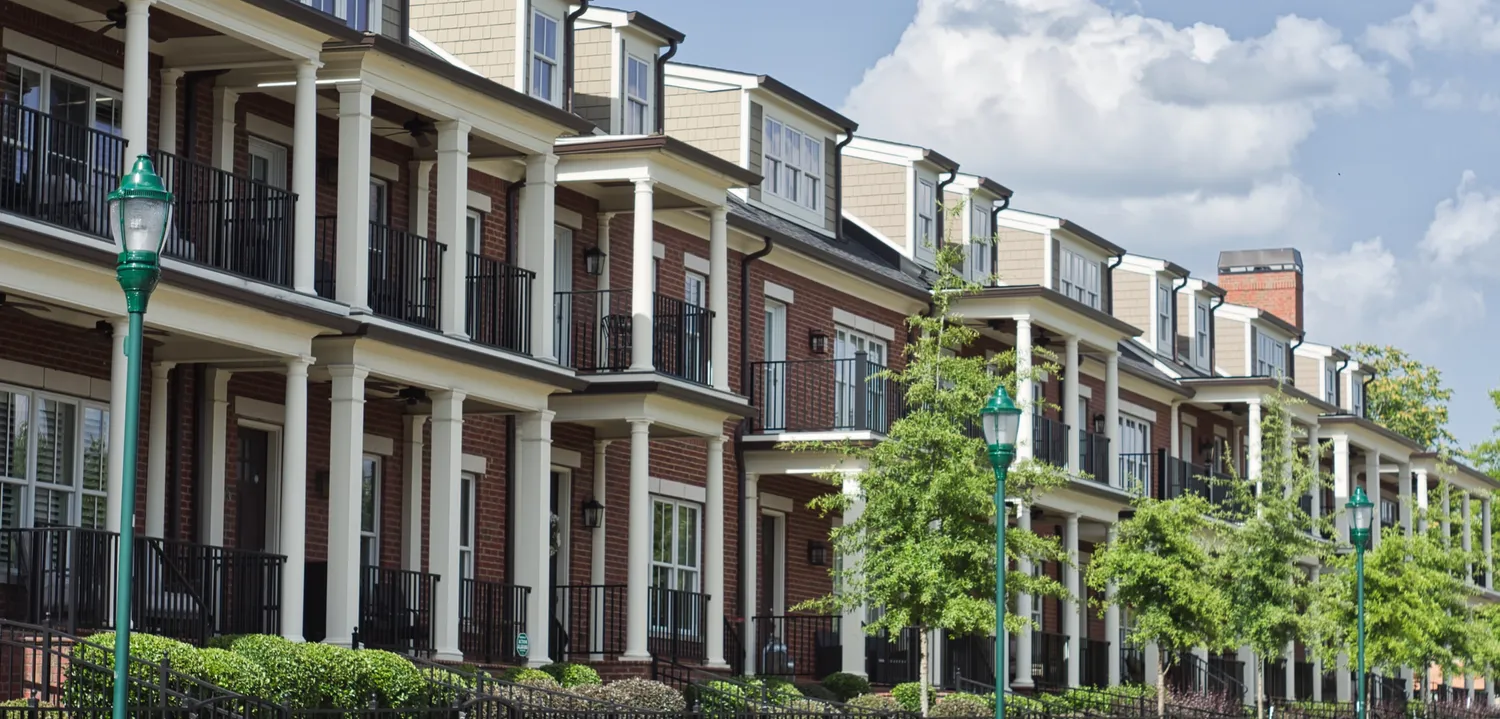Renting vs. Homebuying: Weighing the Options for Remote Workers
By Natalia Wolting • Aug 12, 2024 UTC
The rise of remote work has reshaped the American lifestyle. With the flexibility to work from anywhere, remote workers face a crucial decision - should they rent or buy a home? While homeownership has traditionally been a cornerstone of the American dream, renting offers distinct advantages for the remote workforce. Here are some of the benefits of renting versus homebuying for remote workers.
Location Independence
Remote work allows you to live anywhere with a dependable internet connection. Renting makes it easy to explore different cities and regions and experience new cultures and environments. This can be particularly appealing to those with wanderlust or a desire to live near family. Imagine working remotely from a lake town in Michigan or a country escape in Kentucky. Renting lets you capitalize on these possibilities without the commitment of a mortgage. Leases are typically for 6-12 months, allowing you to easily relocate if your job situation changes or you want to experience life in different communities.
Lower Upfront Costs
Buying a home requires a significant down payment, often 20% or more of the purchase price. This can be a major hurdle, especially for younger workers or those with student loan debt. Renting eliminates this barrier, allowing you to invest your savings or use your paycheck for professional development. While you'll need to pay a security deposit and possibly your first and/or last month's rent, these costs are typically much lower than a down payment, closing costs and other expenses associated with purchasing a home.
Predictable Monthly Payments
Rent payments typically remain fixed for the duration of your lease and utilities may be included, providing budgeting stability. In contrast, homeowners face fluctuating property taxes, homeowners’ insurance costs and the potential for unexpected repairs. This predictable cost structure is a major benefit for remote workers, who may have a variable income depending on their industry or freelance work.
Reduced Maintenance Burden
As a renter, you're not responsible for repairs or maintenance. Leaky faucets, broken appliances, or malfunctioning HVAC systems are your landlord's problem. This frees up valuable time and reduces stress, allowing you to focus on your work and personal life rather than worrying about unexpected home repair costs or time-consuming maintenance tasks.
Access to Amenities
Many rental properties, particularly apartments and condos, offer amenities like gyms, pools, co-working spaces and on-site laundry facilities. These amenities can enhance your lifestyle and reduce the need for additional memberships or services, potentially saving you money in the long run and providing valuable networking opportunities with other remote workers.
Testing Different Locations
Renting allows remote workers to "test drive" different locations before committing to a permanent move. This can be especially valuable if you're considering relocating to a new city. Renters can also utilize relocation programs such as MakeMyMove to receive additional benefits.
It's important to evaluate the benefits of renting versus buying a home when it comes to your lifestyle
Making the Right Decision: Factors to Consider
While renting has many benefits so does homeownership such as building equity and being able to take advantage of tax benefits. It’s important to look at your situation and goals as well as outside factors including:
Job Security
If you're unsure of your long-term job security or have a high likelihood of needing to relocate for work in the near future, renting offers greater flexibility. Conversely, if you're confident in your job and plan to stay put for an extended period, buying may be a sound investment.
Housing Market Conditions
In hot markets where home prices are rapidly rising, renting can be a more affordable option in the short term. However, if you plan to stay in the area long-term and anticipate continued price appreciation, buying can be a better long-term strategy.
Lifestyle Preferences
Consider your lifestyle preferences. Do you crave stability and the ability to put down roots? Or do you value flexibility and the opportunity to experience new places? If you enjoy DIY projects and home improvement, owning a home might be more appealing.
Financial Situation
Carefully evaluate your financial situation. Do you have the savings required for a down payment and closing costs? Can you comfortably afford the ongoing expenses of homeownership, including property taxes, insurance and maintenance?
Speak to a Financial Advisor
Consulting a financial advisor can be extremely helpful in navigating this decision. They can assess your circumstances, project future housing market trends and provide guidance tailored to your unique financial goals.
There's No One-Size-Fits-All Answer
The decision to rent or buy as a remote worker is highly personal and depends on various factors. Renting offers flexibility, lower upfront costs and the ability to easily assess different locations. It can be an excellent choice for those who value mobility or are uncertain about their long-term plans. Ultimately, the best choice depends on your financial goals and lifestyle preferences. By carefully considering the benefits and potential drawbacks of each option, you can make an informed decision that supports your remote work lifestyle and long-term aspirations.
About MakeMyMove
Remote work has freed millions of Americans to live where they want, and many are making the move to places that better match their lifestyle. In turn, cities and towns across the country are offering incentives like cash, perks and programming to remote workers who move and work from their communities. At MakeMyMove, you can explore all the places, get personalized help to find the one that’s right for you, connect with locals, and access support to make your move a piece of cake.

New Program Updates
Get notified about new programs and incentive packages